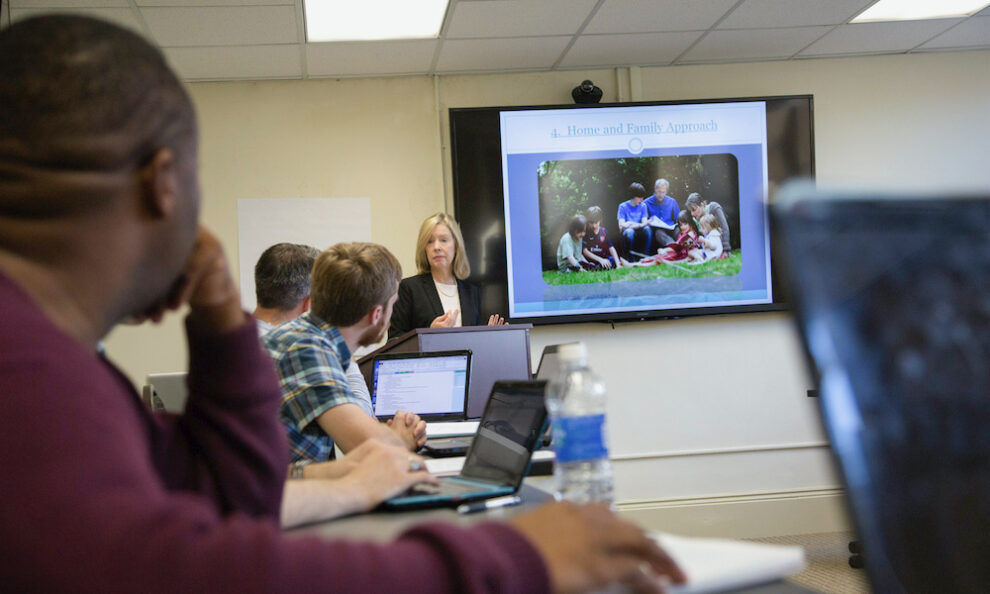Key Takeaways:
- Online theological education offers unparalleled flexibility, accommodating diverse schedules and commitments.
- Utilization of multimedia resources enhances learning and caters to different learning styles.
- Engaging with complex theological concepts can lead to significant personal transformation and introspection.
- Online seminaries create supportive communities conducive to spiritual and intellectual growth.
- The curriculum includes diverse theological disciplines, from biblical studies to church history, fostering comprehensive theological understanding.
- Courses in ecumenical perspectives promote interfaith dialogue and respect for diverse beliefs.
- Students can specialize in areas aligned with their passions and community needs, enhancing their theological identity.
- Networking and mentorship opportunities support personal and professional development in theological pursuits.
- Experiential learning through internships and community involvement applies theological insights in practical contexts.
- Graduates often engage in service-oriented careers, advocating for positive societal change rooted in their theological training.
- Diverse career paths include traditional ministry roles and emerging fields like chaplaincy and nonprofit work.
Discovering Spiritual Growth Through Online Learning
The Flexibility of Online Theological Education
The flexibility of online theological education has reached unprecedented levels in providing for the spiritual growth of individuals. In contrast to brick-and-mortar institutions, online seminaries enable students to personalize their educational paths according to personal schedules and commitments.
This flexibility is particularly supportive for those who have competing work, family responsibilities, and other personal obligations whom they need to attend. The freedom to access work from home at convenient times eliminates the geographical or temporal constraints that are traditional in education. Furthermore, through this accessibility, a mix of people from different backgrounds and locations can be present in theological education, which will present a wide variety of perspectives in the learning environment.
In addition to this, online theological studies use a variety of media to support learning, such as video lectures, interactive forums, and many more digital libraries. Using these media assists in different learning styles by encouraging students to engage richly with the material; hence, a more engaging academic experience is achieved.
The asynchronous nature of so many online courses empowers a student to absorb the lessons at their own pace. This creates a reflection type of approach to one’s spiritual studies. Ultimately, students find that they obtain a greater understanding of these theological concepts, providing deeper applications in their personal spiritual lives and, thereby, in the broader community as well.
How Online Classes Foster Personal Transformation
Online theological education is quite a powerful catalyst of personal change. As learners grapple with complex theological material, most of them are exposed to confrontations with the beliefs they hold, value systems in place, or assumptions prevailing in their context. One can expect transformations in that worldview to run deep and be not only impactful but also lasting. Whether a rigorous argument in virtual classrooms or thoughtful inputs in online forums, theological questions are probed to really challenge the understanding and perception of faith and the spiritual plane.
Online education by nature promotes online peer discussion even when individuals do not live close to each other. Digital communication establishes a learning community that can therefore, encourage each other and be challenged in their spiritual endeavors. The possibility of gaining alternative perspectives on similar theologies allows one to build up his or her thoughts through critical thinking and keep open-mindedness to take on new ideas and input them into existing belief systems. Therefore, this journey towards a transformational experience in learning evolves not only the intellect, but also the spirituality of students within a richer context.
Balancing Life and Learning: Making Time for Spiritual Exploration
Another crucial advantage of online theological seminary education is the incorporation of learning into one’s present lifestyle. Even with full time schedules, students can fit specific times into their busy agendas for spiritual exploration and studying. Such balance is of great importance to ensure that theological education does not serve as a burden but is rather an extension of an already fulfilling life. Such balance can be attained with effective time management, which includes setting aside specific blocks of time for coursework, using travel time to read material, or recording lectures in flexible online tools.
Commitment to spiritual growth can also motivate students to use their time more effectively. When one is able to set personal goals or spiritual objectives through his or her theological studies, he or she has a sense of purpose that can help him or her stay on track. Online seminaries usually offer such resources, like academic advisors or time management workshops, to help students work through these challenges and stay on track. With intention and structure, online theological education becomes an integral and meaningful part of students’ lives, enriching spiritual journeys while addressing circumstances.
Unveiling the Rich Tapestry of Theological Disciplines
From Biblical Studies to Church History: A Curriculum that Inspires
A typical curriculum for an online theological seminaries varies from inspiring, having diverse study tracks ranging from foundational biblical studies to depth coursework in church history and ethics as well as other ministries of pastoral care. While each of these disciplines stands unique to the understanding of faith, they all put together form the multifaceted nature of theology – in historical, cultural as well as spiritual contexts.
Through intense academic exploration, students are encouraged to grasp the scriptures, historical development of religious beliefs, and the practical application of theology to contemporary issues.
It integrates new teaching methods and learning resources, thereby improving learning. Online sites usually include access to an enormous database of theological literature, research papers, and original material that students would not find from other sources.
This exposure helps foster the understanding of historical and modern movements within Christianity and other traditions. The engagement with major theologians, philosophers, and church leaders through multimedia will add more layers of contextualization and insight to academic experiences and motivate students toward deep reflection on their journeys.
Ecumenical Perspectives: Engaging with Diverse Faith Traditions
One of the enriching dimensions of online theological education is the ecumenical perspectives and interfaith dialogue that are central to these curricula. Students in this program will have a chance to research the traditions of Christianity, Judaism, Islam, Buddhism, and indigenous spiritualities. These activities promote respect and appreciation for the others, hence empowering learners with the skill of navigating the multicultural, multi-religious world.
Discussions on diverse faith practices help students break down barriers of assumption and prejudice, thus allowing for a more inclusive approach to understanding spirituality. Online seminaries often include courses that specialize in comparative theology, allowing students to compare and contrast their own beliefs with others while fostering theological reflection and growth. This exposure to varied viewpoints is critical in today’s global society, where interreligious cooperation and dialogue are paramount to addressing shared social and ethical challenges.
Specializations that Illuminate Your Path: What to Choose?
The breadth of online theological education offers numerous specializations tailored to individual interests and career aspirations. From pastoral counseling and youth ministry to missiology and social justice, seminaries provide opportunities for learners to select tracks that resonate with their unique spiritual callings. Each specialization is designed to equip students with practical skills and deeper theological insights needed to serve effectively in their chosen fields.
As students navigate their options, they may find it helpful to consider their personal experiences, spiritual gifts, and the needs of their communities. Engaging with mentors or advisors can also provide clarity and guidance in selecting an area of focus. Ultimately, choosing a specialization that aligns with one’s passions empowers students to develop their theological identity and prepare them for meaningful contributions to the church and society.
Connecting with Community in a Virtual Space
Building Lasting Relationships with Fellow Students
A sense of community is the essential foundation for the theological education experience, and online tools have come up with inventive ways to facilitate relationships amongst students. From group assignments to discussion forums, learners are encouraged to connect, share their experiences, and engage meaningfully with others from diverse backgrounds. These interactions not only make for great academic learning but also open up opportunities for emotional and spiritual support amongst the participants.
Online seminaries frequently use social media groups, synchronous classes, and virtual meet-ups to create that sense of belonging and community. The virtual community can go beyond the classroom itself, as students share in their journeys of faith, encouraging one another in growth in all aspects of personal and spiritual life. And through this journey together facing the challenges of theological education, many students develop relationships that extend far beyond graduation as support networks that enrich lives in many ways.
Networking Opportunities for Aspiring Theologians
In an online theological education context, networking becomes a vital tool for aspiring theologians looking to establish connections that may advance their careers or facilitate collaboration on various projects. Many seminaries offer workshops, conferences, and seminars that are accessible to online students, empowering them to engage with industry practitioners, theologians, and leaders in their respective fields. These opportunities enable learners to gain firsthand insight into current theological discourse, emerging trends, and vocational possibilities.
Moreover, online seminaries often have alumni networks that students can tap into as they prepare to enter the workforce. These networks are invaluable for providing mentorship, job leads, and guidance on academic or ministerial endeavors. By fostering these connections, students can cultivate a sense of professional identity that aligns with their theological pursuits, enhancing their prospects for future opportunities and collaborative projects within their communities.
The Role of Mentorship in Online Theological Programs
Mentorship is a cornerstone of effective theological education, providing students with guidance, encouragement, and support throughout their academic journeys. In the context of online learning, mentorship becomes even more essential in fostering personal connections that may otherwise be harder to cultivate in a virtual environment. Many online theological seminaries prioritize pairing students with experienced mentors who can share wisdom, offer insights into practical ministry, and help navigate the complexities of theological education.
Effective mentorship can significantly enhance the learning experience by fostering a space where students feel valued and supported. Mentors can provide constructive feedback on academic work, share personal experiences in ministry, and encourage students to pursue their unique passions and callings. The mentorship relationship also allows for open discussions about challenges that students may encounter, whether related to coursework, spiritual growth, or vocational discernment. As such, the relationship serves as an invaluable resource for students undergoing a transformational journey through online theological education.
Transforming Knowledge into Practice: Real-World Applications
Bridging Theory and Life: Applying Theological Insights
The true essence of theological education lies in its ability to bridge theory and life, allowing students to apply their theological insights in practical contexts. Throughout their coursework, students are encouraged to approach theological issues with a critical mindset, enabling them to draw connections between academic concepts and real-world scenarios. This process fosters relevant and applicable spiritual insights that can be integrated into personal, communal, and professional spheres.
Moreover, many online theological programs emphasize experiential learning opportunities through internships, service projects, and community involvement. Such initiatives empower students to put their newfound knowledge to practical use, serving their communities while further developing their skills and understanding. Engaging with local organizations or churches allows students to witness firsthand the impact of theology on social issues, reinforcing the symbiotic relationship between theological understanding and practical ministry.
Service and Advocacy: The Call to Action for Online Graduates
Theological education inherently carries a call to service and advocacy, as students are prompted to utilize their knowledge for the benefit of others. Online graduates often demonstrate a strong commitment to serving their communities by addressing issues such as poverty, social justice, and ethical conduct in public life. Armed with a robust theological foundation, these individuals are equipped to advocate for positive change, drawing from their education to confront societal challenges through informed action.
The desire to impact the world positively is often a driving force for those pursuing online theological studies. Many graduates embark on careers in ministry, social work, education, or community advocacy, where they can implement strategies rooted in their theological training to promote wellbeing and justice. By embodying the principles of their faith through compassionate service, these individuals exemplify the transformative power of theological education in action, shining a light on the relevance and application of theological insights in today’s society.
Career Paths: Navigating Your Future in Theology and Beyond
Graduating from an online theological seminary opens numerous career paths, inviting students to explore various vocational opportunities that align with their spiritual callings and the skills acquired during their studies. Traditional roles, such as pastoral ministry and theological education, remain popular choices, but the scope has expanded to include non-traditional avenues. Roles in nonprofit organizations, theological consultancy, interfaith dialogue facilitation, and community outreach are increasingly recognized as essential paths for those armed with theological insights.
Emerging fields, such as chaplaincy and spirituality in healthcare, also reflect a growing demand for theological voices in corporate and social settings. Many graduates pursue positions within hospitals, universities, and corporate sectors, offering guidance and support to individuals navigating personal and ethical dilemmas. By actively engaging in these diverse roles, online theology graduates can leave a profound impact on individuals and communities alike.
Ultimately, the journey through online theological education equips students not only with knowledge but also with the intellectual and spiritual tools needed to navigate their post-graduate endeavors. By embracing their calling with confidence, graduates become forerunners for meaningful change, able to make significant contributions to both their communities and the broader tapestry of the world.













